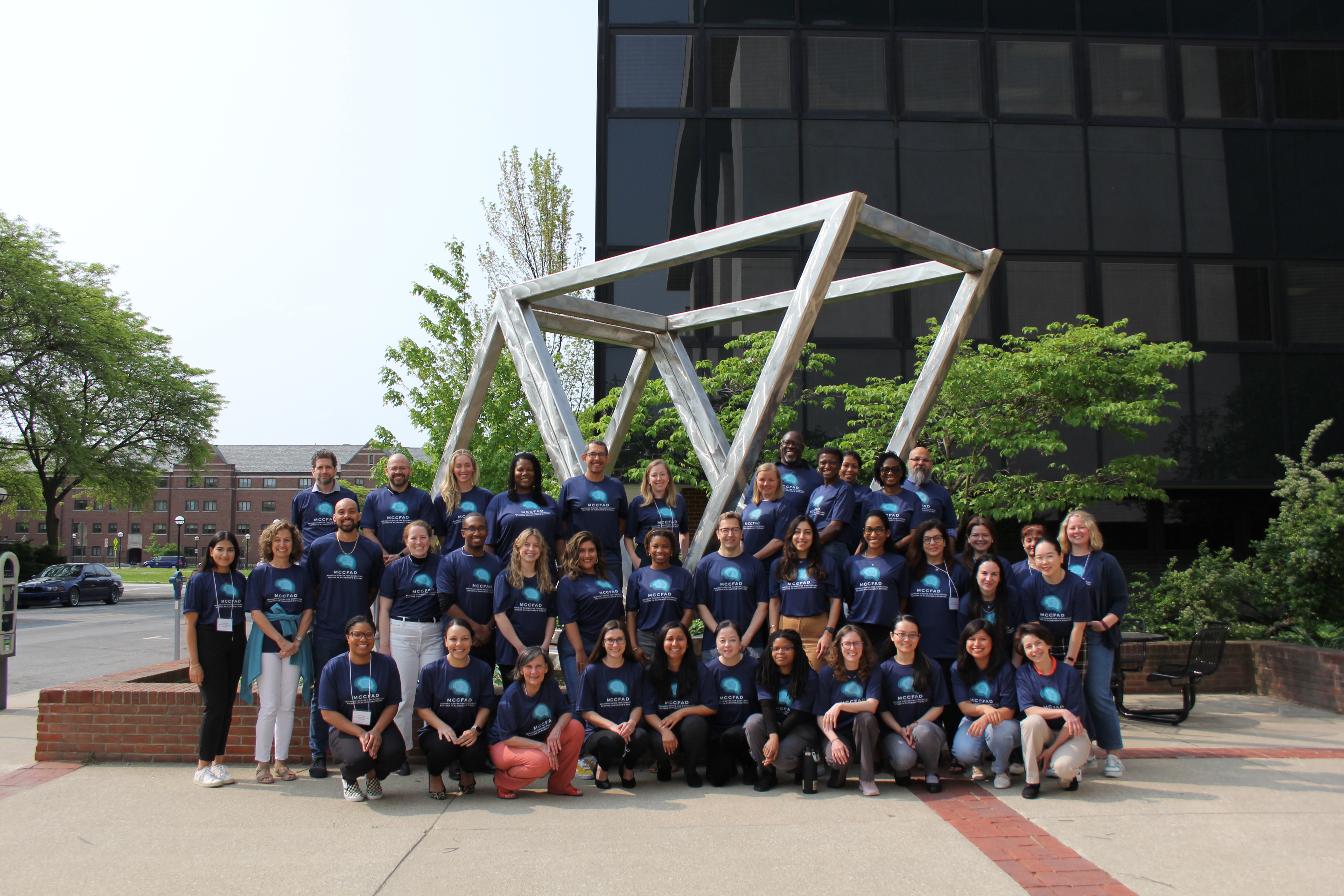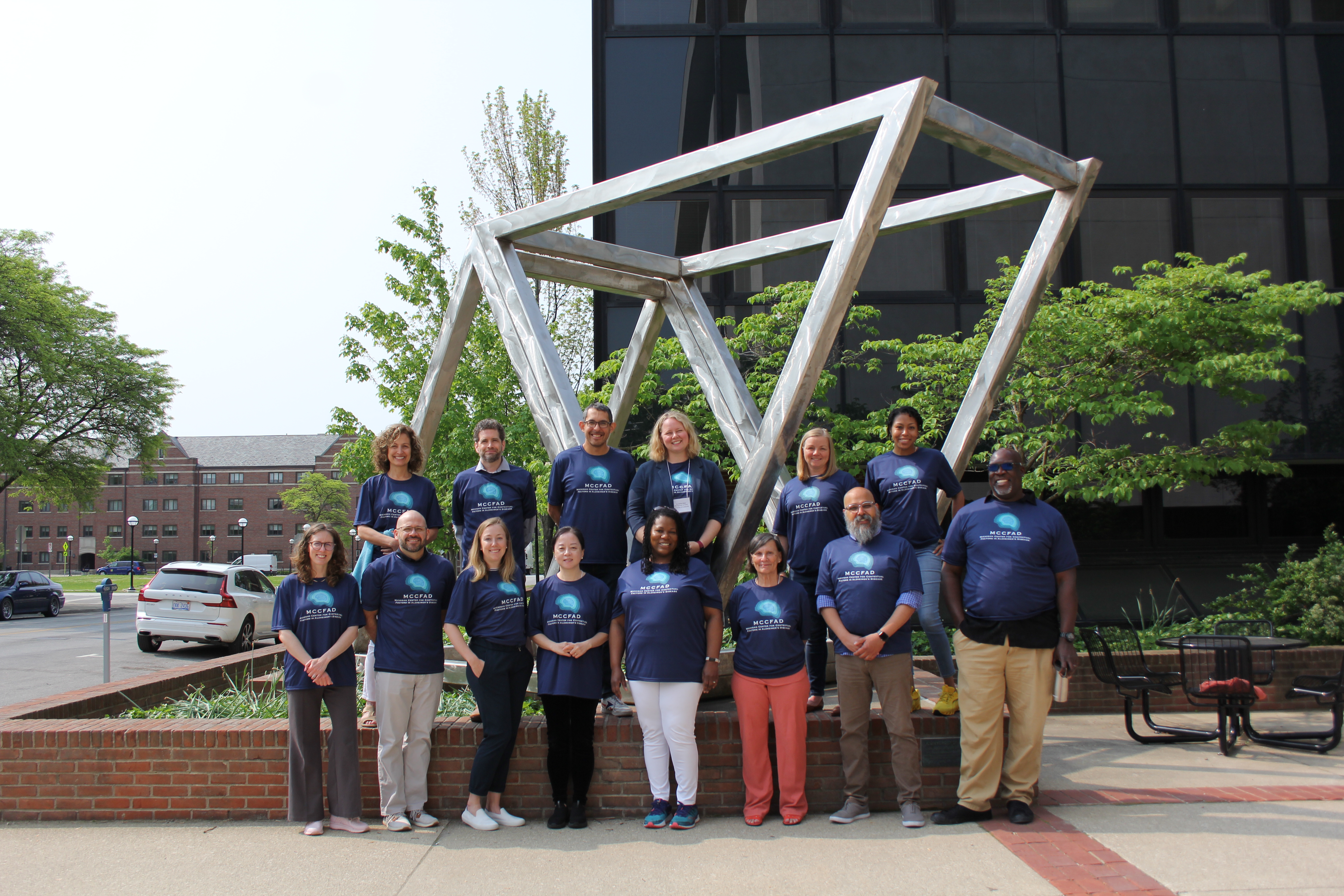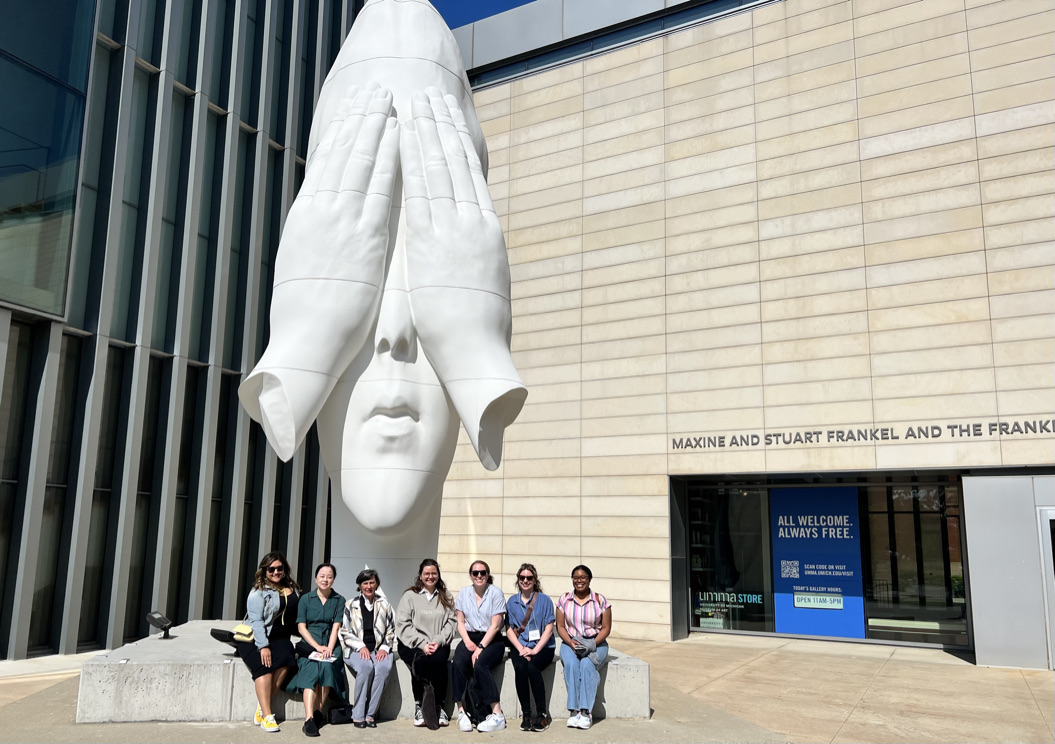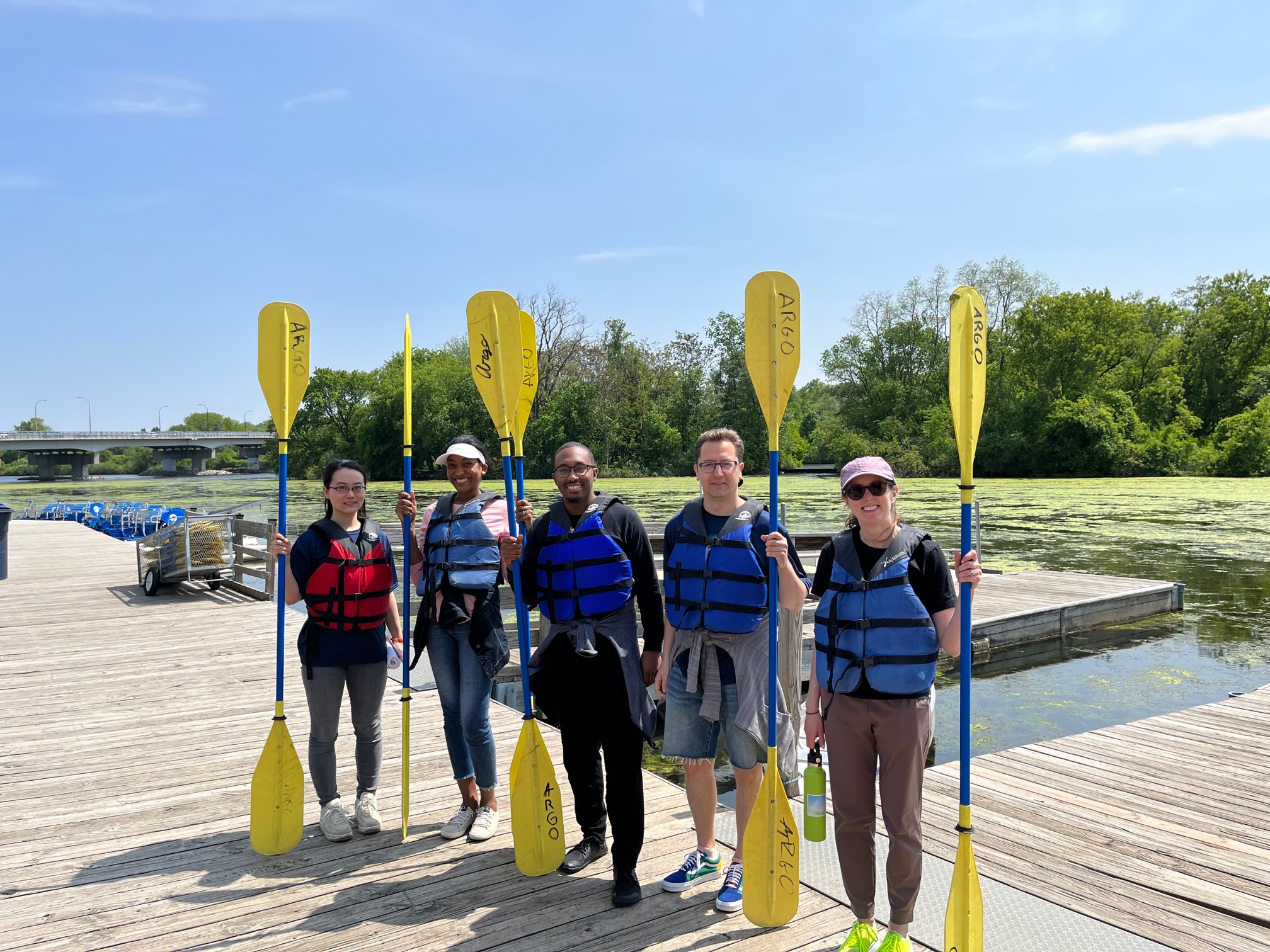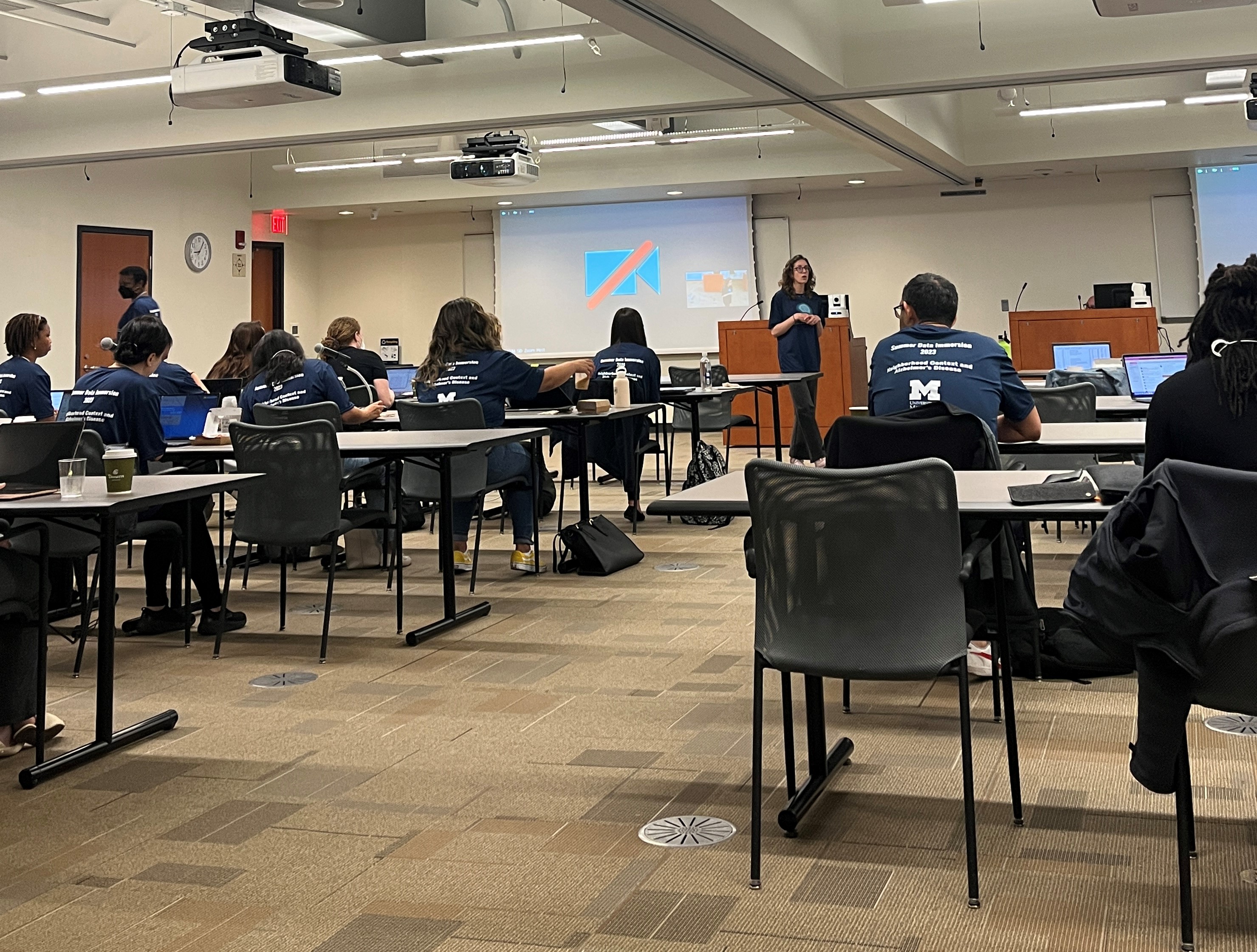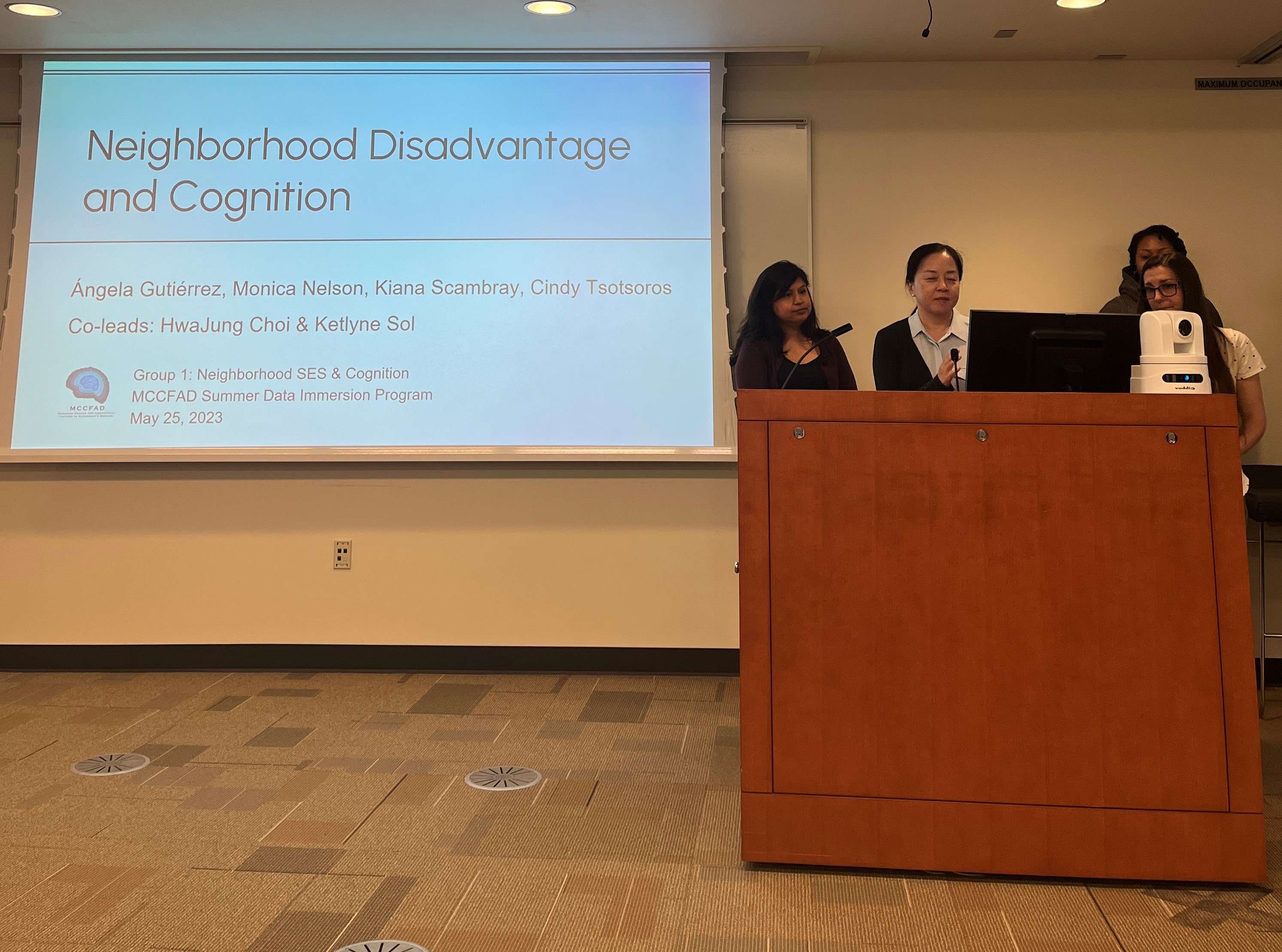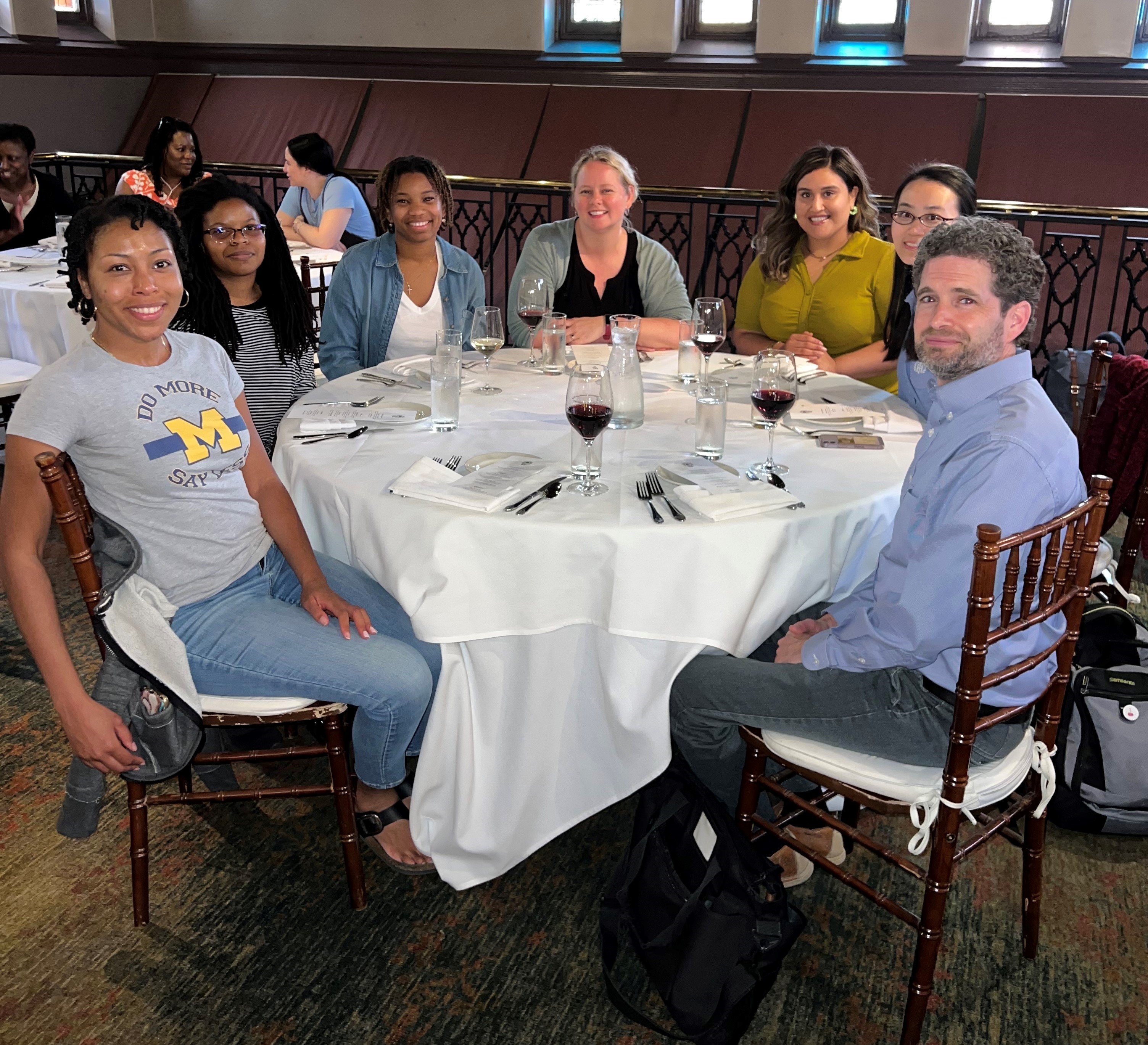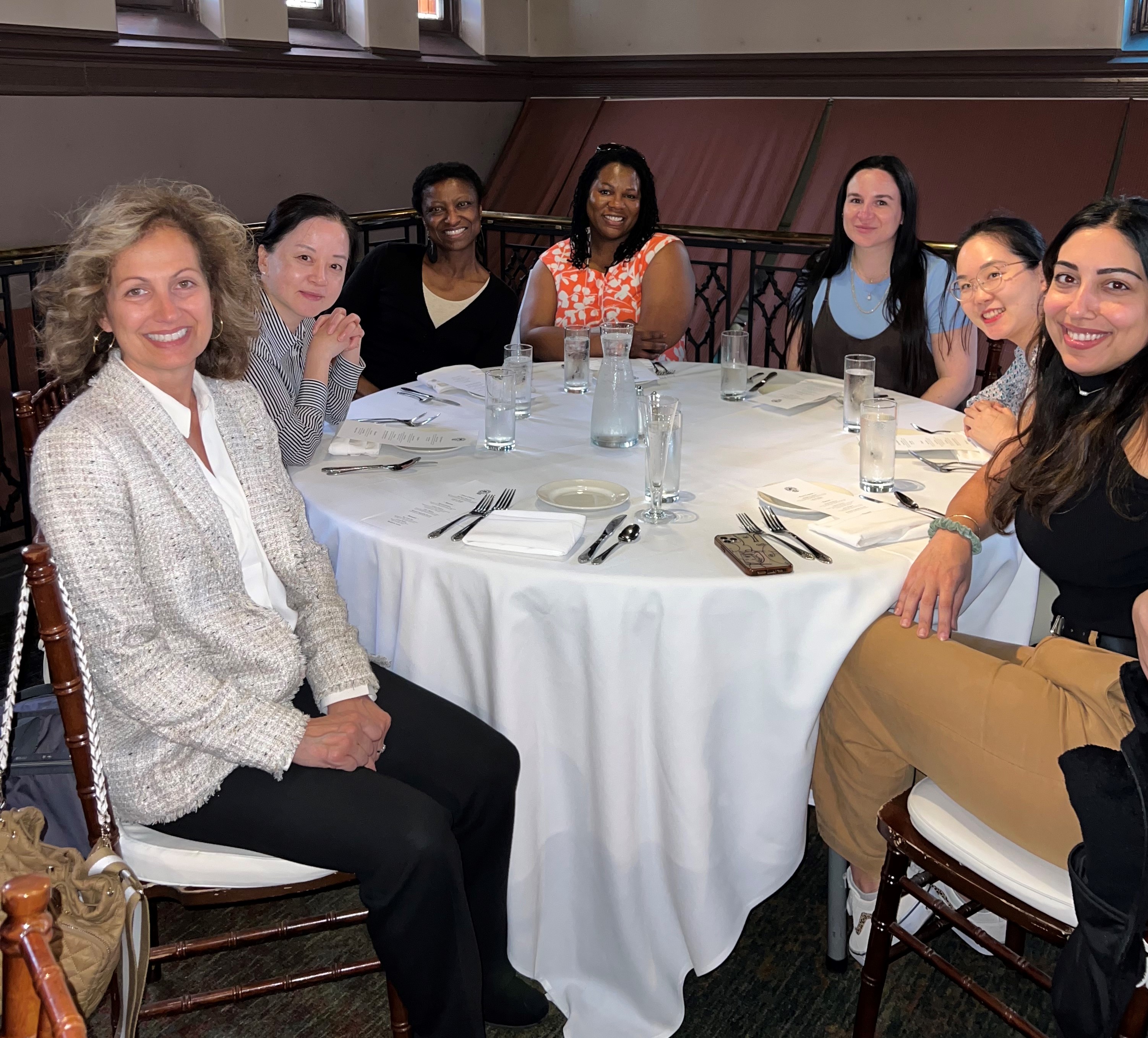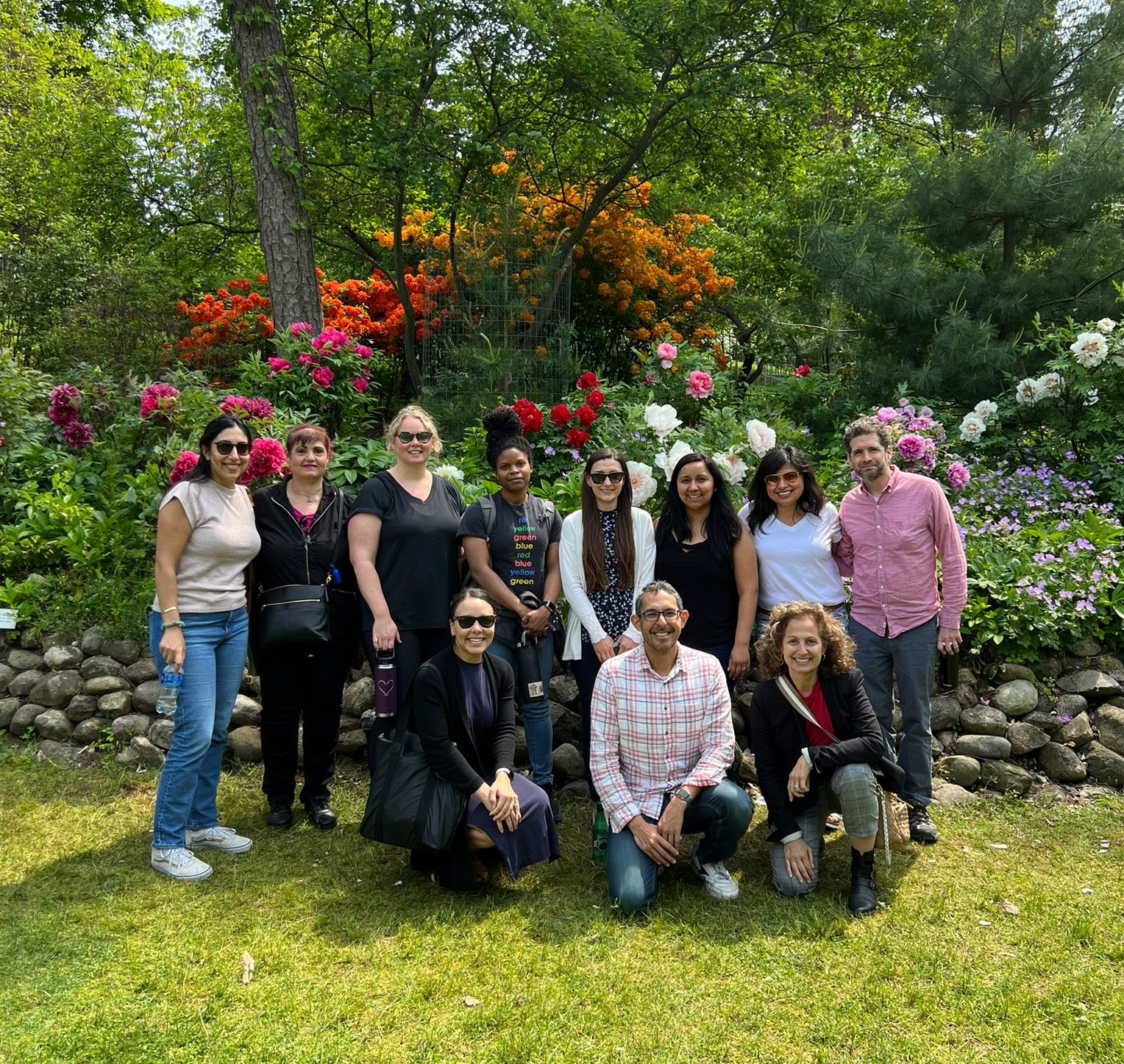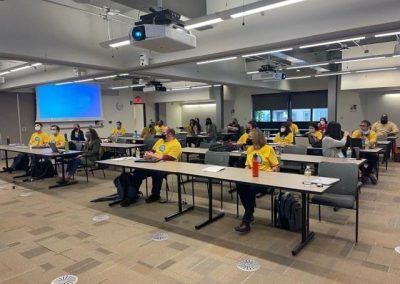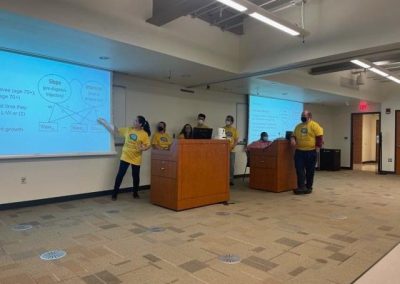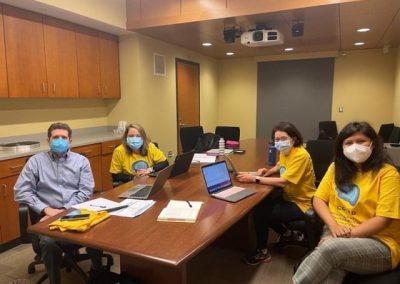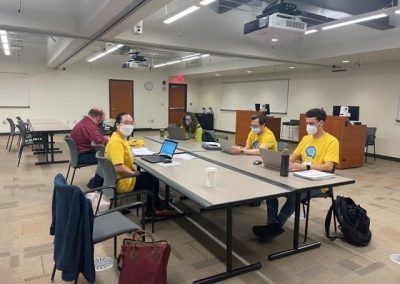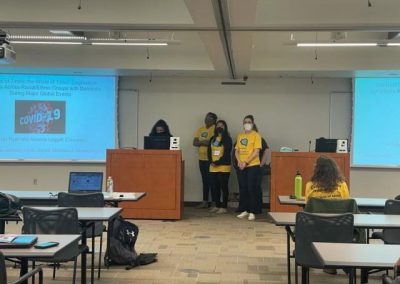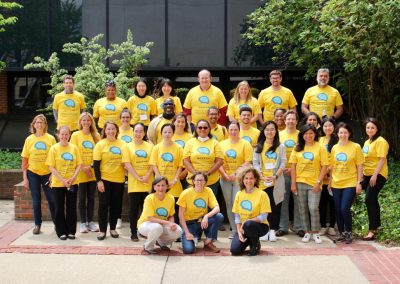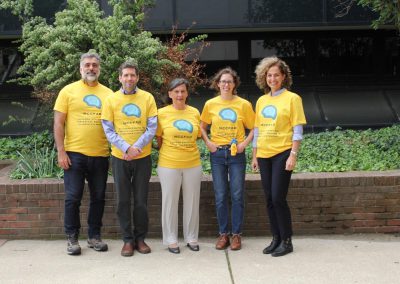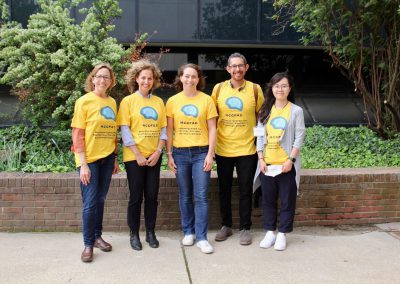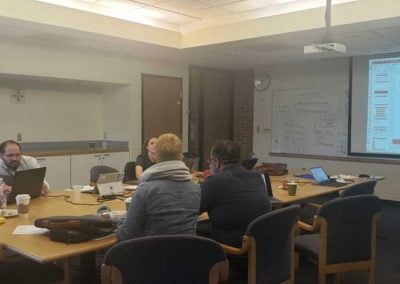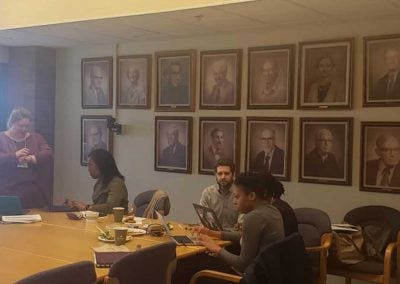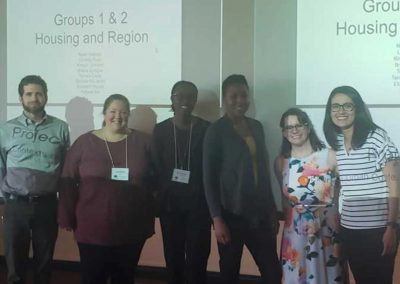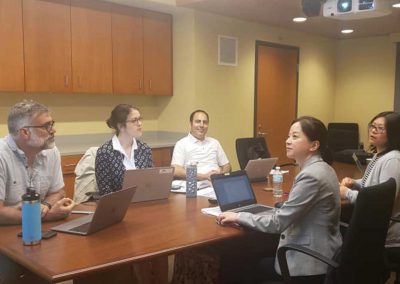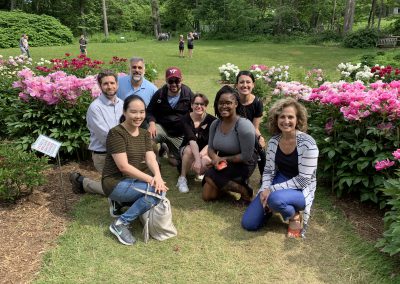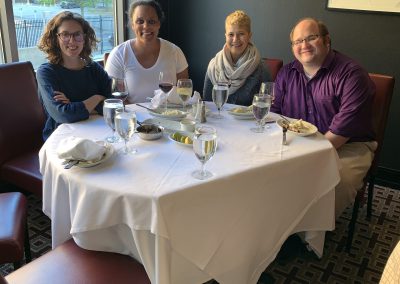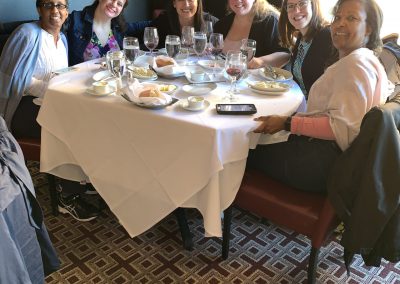Summer Data Immersion Program
Each year, the Research and Education Core (REC) will sponsor a Summer Data Immersion that will leverage University of Michigan’s considerable secondary data resources to train investigators at all levels (graduate students, post-docs, junior faculty, mid and senior faculty). The specific goals of this national, competitive program are to provide:
- Intensive analytic training
- Exposure to secondary data sources that can be used for supplementary publications and pilot data for grant applications
- Significant networking opportunities. During the four-day program, leaders from ICPSR, NACDA,HRS and others will introduce scholars to major, large-scale, international datasets available to address Alzheimer’s Disease and Related Dementias (ADRD)-relevant research questions and provide hands-on instruction in the use of these datasets.
2024 Summer Data Immersion Call for Applications:
Life Course Contexts and Alzheimer’s Disease and Related Dementias
Michigan Center for Contextual Factors in Alzheimer’s Disease Summer Data Immersion
Ann Arbor, Michigan: May 20 – 23, 2024
Applications are open for the Summer Data Immersion program hosted by the Michigan Center for Contextual Factors in Alzheimer’s Disease (MCCFAD), May 20-23, 2024.
MCCFAD is an NIH/NIA-funded Alzheimer’s disease focused Resource Center for Minority Aging Research (AD-RCMAR) that seeks to address disparities in Alzheimer’s disease and related dementias (ADRD) through research, mentorship, community linkages, and increased numbers of behavioral and social scientists from underrepresented backgrounds. The Summer Data Immersion program provides hands-on training in the use of publicly available data resources to address important research questions relevant to ADRD. The theme of the 2024 program will be “Life Course Contexts and Alzheimer’s Disease and Related Dementias (ADRD).” During the program, data will be used from the Health and Retirement Study (HRS) Life History Data Resources.
The Summer Data Immersion program advances a team science approach. It will include informational presentations about best practices for working with data from the HRS Life History Data Resources, discussion on the topics of life-course contexts, minority cognitive aging and ADRD, and training in advanced analytic techniques to examine life-course factors using large, comprehensive longitudinal datasets. This foundation will inform collaborative workgroups that will work as teams to pose hypotheses and analyze rich information from the HRS Life History Resources (Mail Survey, Childhood Health and Family Aggregated Data, and Marital History Aggregated Data) to examine links between life-course contexts and ADRD outcomes. An important aspect of the program is an emphasis on building new collaborations within these workgroups to initiate and pursue new collaborative publications that advance research on contextual factors of ADRD and foster the development of new research networks.
There is a competitive application process for the selection of attendees. Applications are encouraged from all levels (graduate students, post-docs, junior faculty, mid and senior faculty). Expertise in statistics or ADRD is not a prerequisite. We value participation from quantitatively-minded individuals who seek to expand their research focus to ADRD and contextual factors and/or ADRD researchers interested in advancing their skills in working with and analyzing large scale data. We seek to include scholars with diverse research experiences from a variety of disciplines (e.g., economics, epidemiology, nursing, psychology, public health, social work, and sociology) to promote peer learning of new skills that will be incorporated into attendees’ future research programs. Applications are due February 12th, 2024, and notification of acceptance will occur by April 1, 2024.
Interested individuals should complete the application using the following link: SDI Application.
Applications with attached CVs should be submitted by February 12, 2024. Please contact [email protected] for any questions. We hope to see you this summer!
Sheria Robinson-Lane & Hwajung Choi, MCCFAD Research and Education Core co-leads
Richard Gonzalez & Noah Webster, MCCFAD Analytic Core co-leads
Kristine Ajrouch, Toni Antonucci, & Laura Zahodne, MCCFAD Directors
2023 Program
Neighborhood Context and Alzheimer’s Disease and Related Dementias
2022 Program
The Cost of Alzheimer’s Disease and Related Dementias
2021 Program
Racial/Ethnic and Contextual Factors in the Study of Alzheimer’s Disease Care
Forty-five researchers joined this virtual program to emphasize racial/ethnic and contextual factors in the study of Alzheimer’s disease (AD) care using a team science approach. During the program, data from the National Health and Aging Trends Study (NHATS) and its linked National Study of Caregiving (NSOC) were used to investigate AD care topics, including: 1) immigrant contexts, 2) end-of-life caregiving, 3) multiple caregivers; 4) spousal caregiving; 5) geographic contexts; 6) interactions with the medical system; 7) costs of AD caregiving; 8) COVID-19 contexts; and 9) paid care in the contexts of community and long-term environments. MCCFAD kicked off the nine-day program with plenary talks on the topics of AD care in racial/ethnic contexts from Dr. Sheria Robinson-Lane, NHATS and NSOC overview from Dr. Vicki Freedman, and dyadic analysis techniques from Dr. Richard Gonzalez, including a podcast style presentation in collaboration with Dr. William Chopik. The virtual format incorporated in-depth team work, a hack-a-thon, as well as social and cultural activities including a chocolate tasting event where SDI participants learned about cocoa that comes from parts of the world where racial/ethnic minorities in the U.S. have ancestry. MCCFAD’s long-term goal is to eliminate ADRD disparities through research findings, mentorship, community links, and increased numbers of behavioral and social scientists from underrepresented backgrounds. Each year we accept 3 Research Scientists for our enrichment program which involves mentoring from the pilot-study investigator stage through professional publications and independent research applications and funding. Keep an eye out for our Request for Proposals in fall 2021. The SDI program is organized to extend our reach and contribute to advancing the science of contextual factor in Alzheimer’s disease. We solicit applications for our SDI in early spring.
2019 Program
Modeling Cognitive Aging in Context
By all accounts, the 2019 MCCFAD Summer Data Immersion Program was a big success!
Participants represented all career levels and various academic disciplines. The program included didactic presentations, small workgroup meetings, hands-on training in data analysis to address important research questions relevant to Alzheimer’s Disease and Related Dementias, lots of networking, and mentorship opportunities.
The 2019 workshop may be over, but it does not end here. Participants will continue to work with their group members to answer their research questions and develop their publications!

